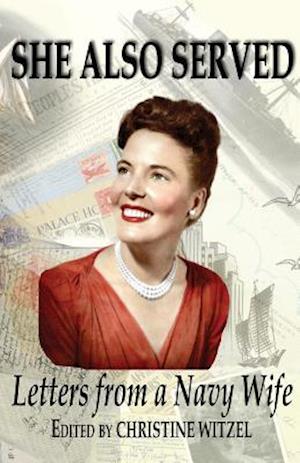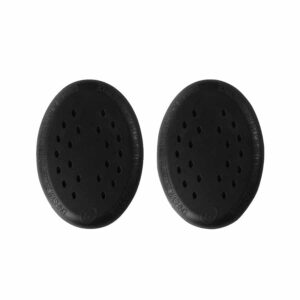Beskrivelse
What was daily life like for a Navy officer’s wife in California during World War II? In China amid civil war? In London and Europe during the Cold War? She Also Served: Letters from a Navy Wife offers an up-close and personal account of one woman’s life during extraordinary times. With an eye for detail and an irrepressible sense of humor, Virgilia Short Witzel (1910-2004) tells the lesser-known stories of the Greatest Generation, those of a woman who served behind the scenes.
Through skillful reporting, she reveals the dedication (and stamina) required to protect her family, support her husband’s career, and represent the best of America, at home and overseas. Her younger daughter, Christine Witzel, sifted through hundreds of private letters, compiling the most entertaining and historically interesting selections. The result is an eminently readable collection. In the process, Christine, born in 1950, discovers a side of her mother that she had never known as well as a window into history as it unfolded.
With her husband stationed in the Pacific, Virgilia moves into the “Snuggery,” a guest cottage behind her parents’ home in Menlo Park, California. She plants vegetables in a victory garden, rolls bandages for the Red Cross, and tries to achieve a sense of normalcy for herself and daughter Joanna amid rationing, shortages, and loneliness:
“Going to weddings without a man of your own is a very bad business,” she writes. “Whoever wrote that book about living alone and liking it was either a fool or a liar. I can see why some women rent escorts Come on home before I set a trap for the milkman ” (July 4, 1943)
Organizing a wartime birthday party is no easy affair: Woolworth’s replaces candy counters with book displays, her favorite bakery won’t take orders, and nowhere can she find white cotton socks for Joanna. “Can you imagine such a thing?” she writes. (July 20, 1943)
An English major at University of California at Berkeley, Virgilia almost lands a newspaper job. “Mr. Willis (at the Menlo Park Gazette) was willing to give me a week’s trial writing the society news, but his wife said no, so that was that.” (Sept. 8, 1943)
After wartime privation, Virgilia joins her husband in Shanghai in November 1946, where she relishes opulent accommodations, servants, and panoramic views offering ” box seats for a continual newsreel.” The “singing stevedores” captivate her. The tune is “halfway between a chant and a yodel, and in rhythm with their steps, gradually slowing down to one note as the load reaches the bottom of the truck.”
Based in London from 1953 to 1955 (the era portrayed in the “Call the Midwife” and “Bletchley Circle” TV series), Virgilia and her family explore postwar Europe. She brings her sharp eyes to a Buckingham Palace garden party, where she encounters Sir Winston Churchill and Billy Graham. She applauds the elegance of upper-class British women but is less than taken with the Royal Family. “The Queen is much smaller than she appears in photographs and also looked older and more tired than we had expected.” … Princess Margaret (“looking rather bored and sullen” en route) “is very small and the Queen M is just as short but very fat and quite un-aristocratic looking. The Duke is really a dish-very tall, very slender and full of personality.”
Describing Billy Graham, she writes: “His skin is as smooth and fine-textured as a child’s and some friends wondered if he had on pancake makeup. He’s like a matin e idol-very tall, blond and glamorous. His wife looked pretty much like the usual parson’s wife.” (July 24, 1955)
Virgilia was a brilliant social reporter, and Mr. Willis erred grievously by failing to hire her. Recognizing her mother’s talent, Christine Witzel opens her letters to new audiences.














